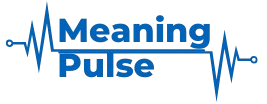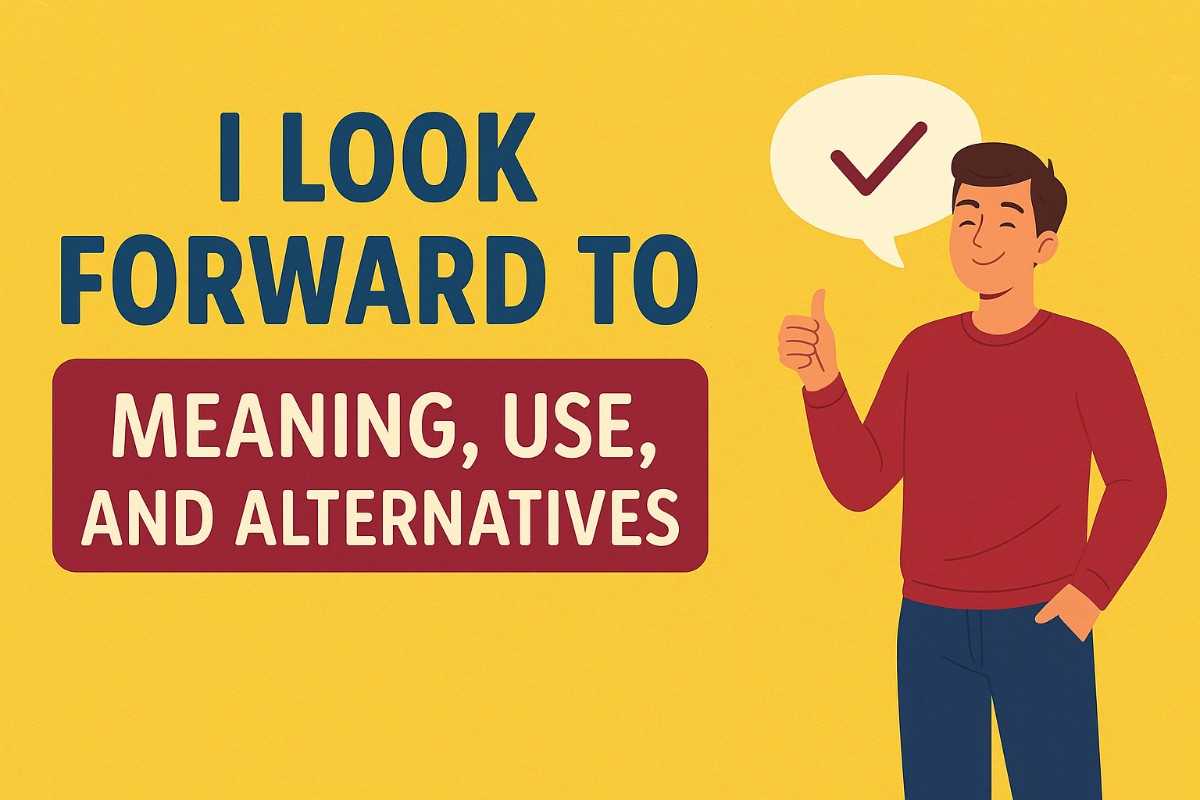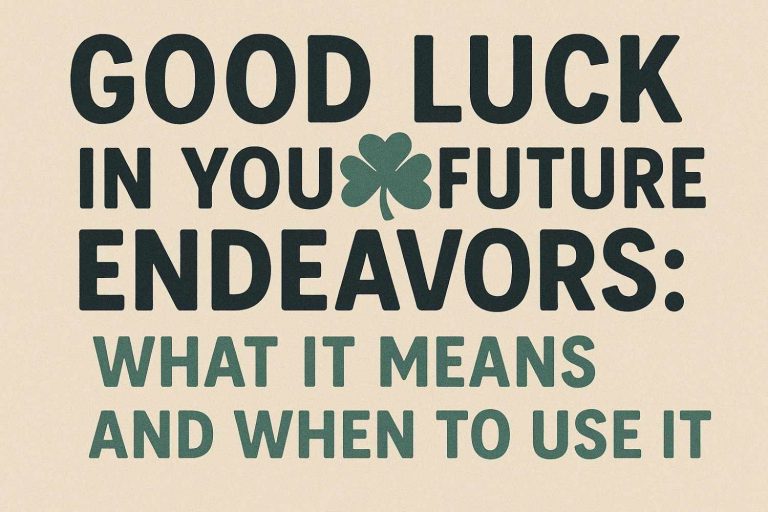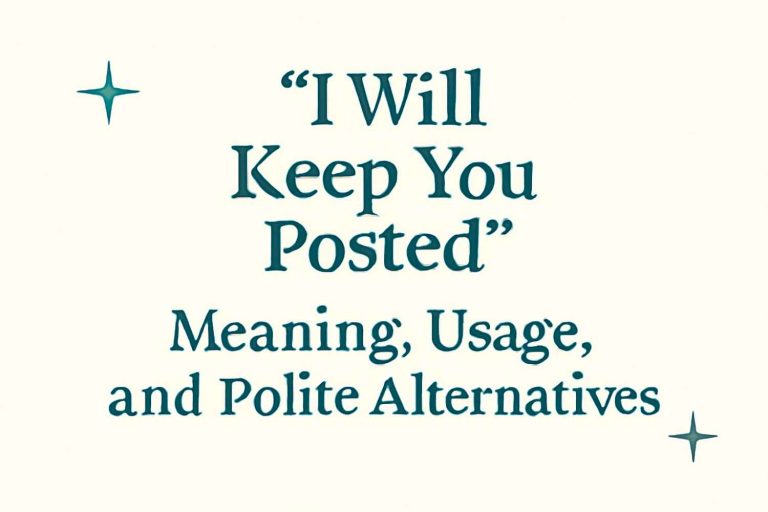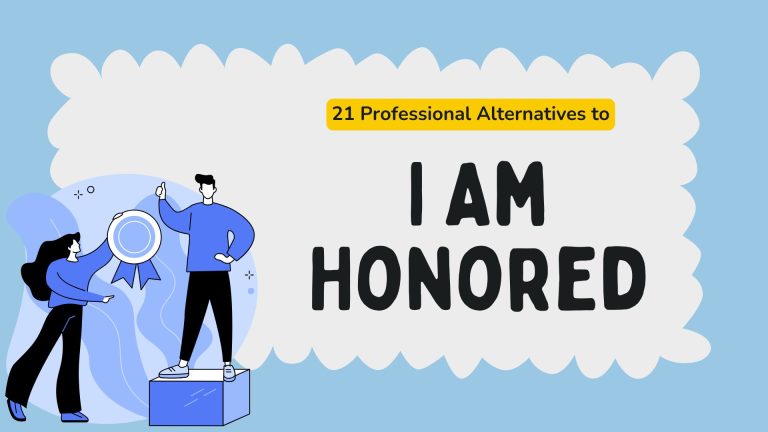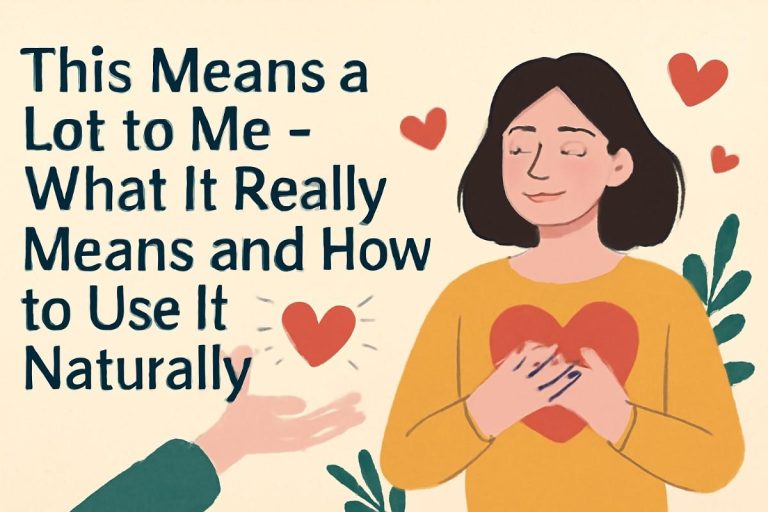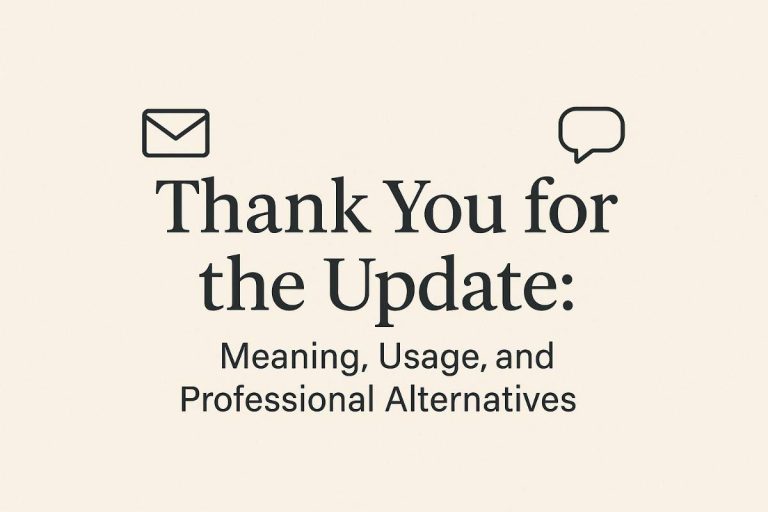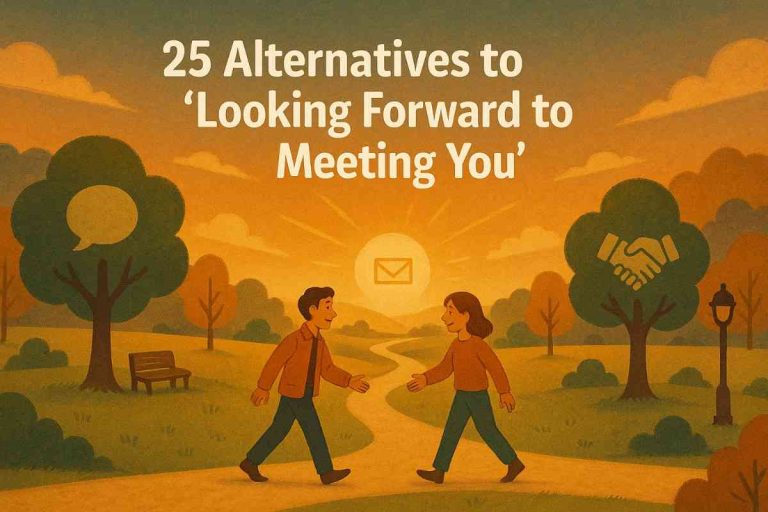“I Look Forward To” – Meaning, Use, and Alternatives
“I look forward to” is one of those phrases you see everywhere. It’s in emails, letters, job applications, and casual messages. People use it to show excitement or anticipation for something in the future.
It’s polite and works in many settings, but it can also feel formal or overused. If you’re sending a lot of professional messages, you might want a fresh way to say it. In personal chats, you might want something warmer or more casual.
This guide explains what “I look forward to” means, when to use it, and 18 alternatives to keep your language engaging. You’ll also learn simple ways to respond when someone says it to you.
What Does “I Look Forward To” Mean?
The phrase means you expect something to happen and you’re happy about it. It can be about meeting someone, hearing from them, working together, or attending an event.
It’s a polite way to express interest and positive anticipation. In business, it shows professionalism. In personal life, it shows genuine excitement.
The structure often follows this pattern:
- “I look forward to [event or action].”
Examples:
- “I look forward to meeting you.”
- “I look forward to hearing from you soon.”
When and Where to Use “I Look Forward To”
You can use it in many situations:
- Professional emails – At the end of messages to clients or colleagues.
- Job applications – In cover letters or follow-up emails.
- Event planning – When confirming attendance.
- Friendship or family – To show you’re excited for a get-together.
It’s a safe, polite choice in almost any setting. But if you use it too often, it can lose impact. That’s why knowing other options is helpful.
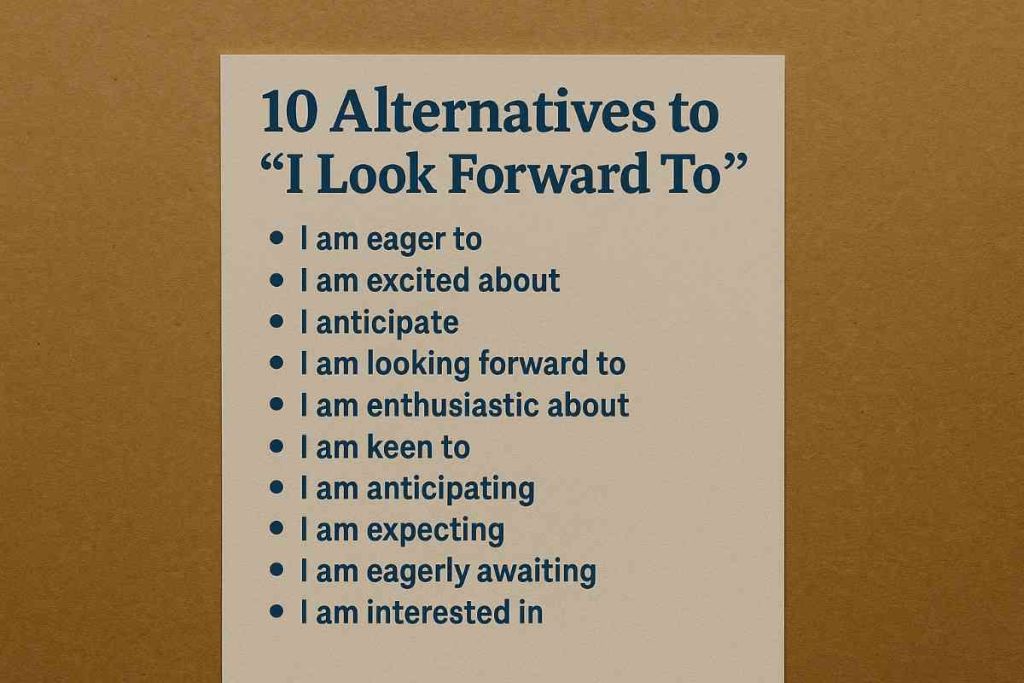
18 Alternatives to “I Look Forward To”
Each alternative includes:
- Meaning – The core idea.
- Explanation – When and why to use it.
- Scenario Example – How it might look in a sentence.
- Tone – The feeling it gives.
1. “I’m excited about”
Meaning: I feel happy and eager for something.
Explanation: Adds energy and emotion, great for personal and work contexts.
Scenario Example: “I’m excited about starting this new project with you.”
Tone: Enthusiastic and positive.
2. “Can’t wait for”
Meaning: I’m very eager for it to happen soon.
Explanation: Casual and warm, good for friends and close colleagues.
Scenario Example: “Can’t wait for our coffee catch-up next week.”
Tone: Informal and friendly.
3. “I’m eager to”
Meaning: I’m ready and willing to start or do something.
Explanation: Formal enough for business, but still warm.
Scenario Example: “I’m eager to begin working on this assignment.”
Tone: Professional and motivated.
4. “I’m looking forward” (without “to”)
Meaning: Expresses anticipation but in a shorter form.
Explanation: Works in quick texts or informal chats.
Scenario Example: “I’m looking forward to tomorrow’s game.”
Tone: Neutral and clear.
5. “I’m thrilled to”
Meaning: I feel strong happiness about it.
Explanation: Use when you want to show big enthusiasm.
Scenario Example: “I’m thrilled to join your team next month.”
Tone: Excited and energetic.
6. “I anticipate”
Meaning: I expect and am ready for it.
Explanation: More formal, ideal for contracts, letters, or official emails.
Scenario Example: “I anticipate a productive discussion at our meeting.”
Tone: Formal and precise.
7. “I’m happy to”
Meaning: I’m pleased about doing it.
Explanation: Light and positive, good for casual or professional use.
Scenario Example: “I’m happy to meet and discuss your ideas.”
Tone: Warm and open.
8. “I’m ready for”
Meaning: I’m prepared and expecting it.
Explanation: Use when preparation is part of the message.
Scenario Example: “I’m ready for our strategy session tomorrow.”
Tone: Confident and prepared.
9. “I’m counting on”
Meaning: I expect and depend on something happening.
Explanation: Stronger commitment, often in teamwork.
Scenario Example: “I’m counting on our collaboration being a success.”
Tone: Direct and assertive.
10. “I can’t wait to hear”
Meaning: I’m eager for your reply or update.
Explanation: Friendly way to encourage a response.
Scenario Example: “I can’t wait to hear what you think about the proposal.”
Tone: Light and approachable.
11. “I’m all set for”
Meaning: I’m ready and prepared.
Explanation: Great for confirming plans.
Scenario Example: “I’m all set for our meeting at 3 PM.”
Tone: Confident and casual.
12. “I’m glad we’re”
Meaning: I’m happy about the action we’re taking together.
Explanation: Adds a shared feeling of anticipation.
Scenario Example: “I’m glad we’re working together on this launch.”
Tone: Warm and collaborative.
13. “I’m prepared to”
Meaning: I’m ready to start or take action.
Explanation: More formal, suits business settings.
Scenario Example: “I’m prepared to deliver the final draft by Friday.”
Tone: Professional and clear.
14. “I’m keen to”
Meaning: I have strong interest or desire to do something.
Explanation: Common in British English, polite yet enthusiastic.
Scenario Example: “I’m keen to explore more partnership options.”
Tone: Formal with a friendly touch.
15. “I’m anticipating”
Meaning: I’m expecting something with interest.
Explanation: Slightly formal, works well in both email and speech.
Scenario Example: “I’m anticipating a great turnout at the event.”
Tone: Neutral and professional.
16. “Looking ahead to”
Meaning: Thinking positively about the future event.
Explanation: Good for reports, newsletters, or speeches.
Scenario Example: “Looking ahead to another year of growth together.”
Tone: Forward-looking and optimistic.
17. “I welcome the chance to”
Meaning: I’m happy about having the opportunity.
Explanation: Works in interviews, proposals, or formal talks.
Scenario Example: “I welcome the chance to share my ideas with the team.”
Tone: Respectful and professional.
18. “I value the opportunity to”
Meaning: I appreciate and respect this chance.
Explanation: Very formal, ideal for professional correspondence.
Scenario Example: “I value the opportunity to contribute to this project.”
Tone: Formal and appreciative.
Also Read – “It’s My Pleasure to Help” – Meaning, Use, and Alternatives
How to Respond When Someone Says “I Look Forward To”
When someone says this to you, they’re showing interest in a future meeting or action. Your response should acknowledge that and keep the tone positive.
Simple responses:
- “Me too.”
- “Same here, can’t wait.”
- “I’m looking forward to it as well.”
- “Glad to hear that.”
- “It should be great.”
You can also add a detail:
“Me too—Thursday’s meeting will be a good one.”
The idea is to match their enthusiasm and confirm the plan.
Conclusion
“I look forward to” is a reliable phrase for showing positive anticipation. It works in emails, letters, and conversations across both personal and professional life. Still, using it too often can make your writing feel repetitive.
The 18 alternatives above give you fresh, clear ways to express the same meaning while adjusting tone and style. From casual options like “Can’t wait for” to formal phrases like “I value the opportunity to,” you now have a range to suit any situation.
No matter which one you choose, sincerity is key. Words have more impact when they reflect genuine interest.
If you want, I can also prepare an SEO meta title, description, and keyword list so this ranks better for phrases like alternatives to I look forward to and professional ways to say I look forward to.
Do you want me to add that?
